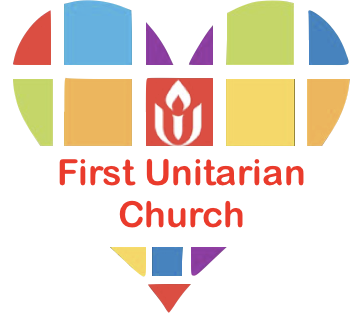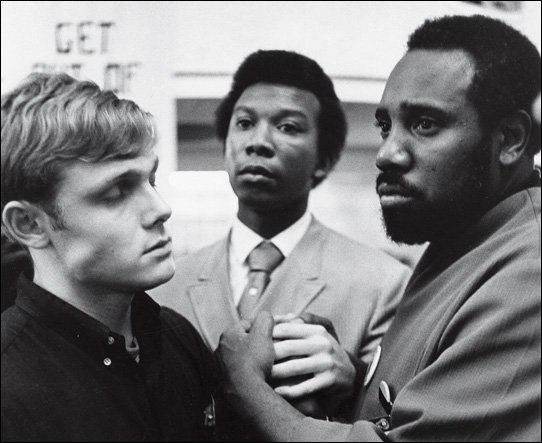First Unitarian is proud of its history as the spiritual center of Los Angeles's social justice activists and progressives since its founding in 1877.
Caroline Severance - our founder
Our church was founded by Los Angeles’s famous suffragette, Caroline Severance, in 1877. The Los Angeles Times described Severance as an “abolitionist, socialist, outspoken agitator and quiet instigator.” She founded the Friday Morning Club, L.A.’s first women’s political club; the LA public library, and California’s first kindergarten. Severance voted in the 1912 Presidential election at age 92 after fighting for the right to vote for more than 60 years.
reverend stephen fritchman - our longest serving minister
Stephen Fritchman served as the Minister of First Unitarian from 1948 to 1969. During his tenure, the church supported a number of progressive causes. In the 1950s and 60s, the church took strong stands against the Korean and Vietnam Wars. On February 21, 1954, the First Unitarian congregation voted to refuse to sign a "loyalty oath" to the United States that the State of California required from non-profits as a condition of keeping their non-profit status. The church issued released a press statement saying, "While Unitarians yield to none in the degree of their loyalty to this country, they also yield to none in their determination to protect religious, philosophical and political freedom for every American." The church sued the City of Los Angeles in an effort to overturn the law and in 1958, the U.S. Supreme Court ruled in favor First Unitarian, invalidating the law.
Fritchman's and the church's strong defense of civil liberties and the freedom of speech help build the church's relationship with Los Angeles liberals and leftists, including the motion picture artists called the "Hollywood Ten" that were accused of having Communist ties or sympathies. Over its many years First Unitarian has hosted a number of famous speakers including W.E.B. Du Bois, Thomas Mann, Linus Pauling, Pete Seeger, Paul Robeson, Jane Fonda, and Rita Moreno.
Fritchman was known as a warm, charismatic speaker with a sense of humor. He cared deeply about social justice issues and the importance of a liberal church as a religious institution. Under his ministry, First Unitarian grew in membership to over 1,200 with weekly attendance of over 400.
Our Church’s Role in the UU Black Empowerment Movement (1967-1973)
Members of our church played a significant role in the Unitarian Universalist Black Empowerment movement. We have dedicated several pages to telling the history of this movement and the role our church, its members, and ministers played both locally and nationally.
Visit this page to learn more and see documents from our church archive.
Nobel Prize Winning Author Thomas Mann
Our church was also the home of German writer and Nobel Prize winner Thomas Mann. In this video, Heinrich Detering shares what he learned about Thomas Mann’s time at First Unitarian. Recently, our church has hosted German intellectuals studying Thomas Mann at LA’s Thomas Mann House.
today first unitarian continues to be a beacon of justice
Today First Unitarian continues to be one of Los Angeles's most famous progressive churches. Its members are involved in contemporary progressive movements including Black Lives Matter, immigration rights groups, and human rights organizations. Our affiliated organization, Urban Partners Los Angeles, provides a number of programs in the neighborhood including the distribution of groceries to families in need.
Learn more about our history by visiting the First Unitarian Church of Los Angeles Wikipedia Page.





